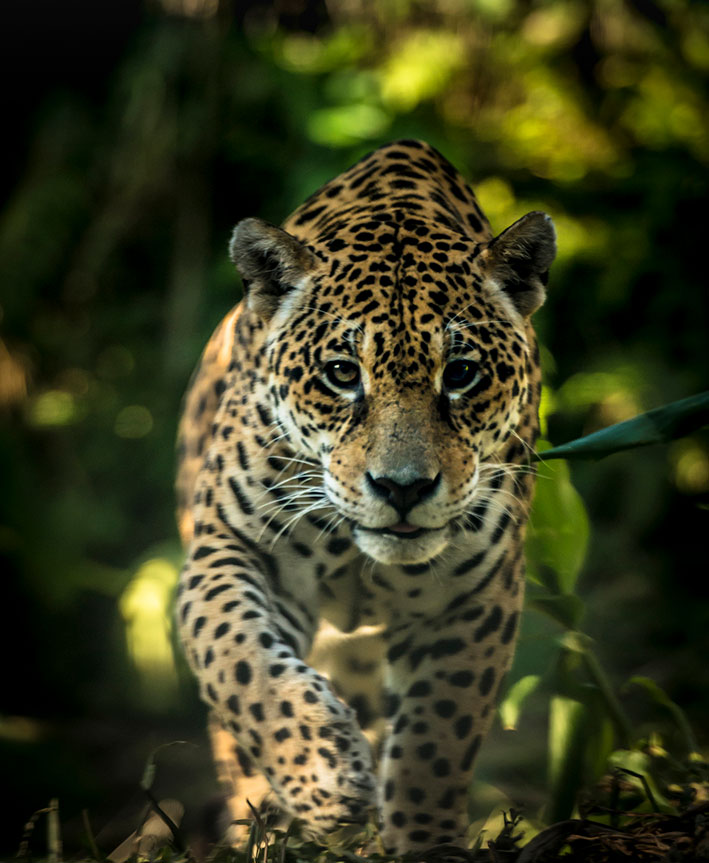Jaguar
(Panthera onca)

Primarily in Central and South America and much of the Amazon
We used to be much more common in Mexico and even the Southwest United States, but we’ve been threatened by serious habitat loss and fragmentation.
About me
I can sprint at car-like speeds, crush skulls with my bite, I can climb, swim, jump… is there anything I can’t do? My sleek, intimidating form and distinctive, rose-like spots, makes me one of the most recognizable big cats in the world, and the only Panthera in the Americas.
As the big cats in charge, we keep the plant and seed-eating animal populations in check, maintaining the balance of the ecosystem at large.
So not only do we depend on our forests for survival, the forests depend on us too!

Fast Facts: Did you know?
Our name likely comes from the word yaguara, which means “wild beast that overcomes its prey at a bound.” I’d say that’s pretty accurate, wouldn’t you? The words petunia, tapioca, and piranha all came from the same Indigenous Tupi–Guarani language family.
You probably think of us as hunters, stalking our prey on land… but we also love fish. Picture this: we dip our tails in water to lure fish, just like a fishing rod. We’ve even been known to pounce on a caiman — the cousin of a crocodile! And on some islands, we’ve literally learned to dive into the sea to catch our prey! It just goes to show how our environment can really affect our skills and habits.
The rainforests of the Amazon, Congo, and Indonesia are our last best line of defense against the biodiversity and climate crisis. But 17 corporations are making massive profits by driving their destruction and the violation of human rights. That has to end NOW.
Why I want to Keep Forests Standing
We need a lot of space to hunt and prowl around! It’s hard for us to accept being restricted in a reservation: we like to come and go as we please. But with our beloved forests being cut down and fragmented as they are for agriculture like soy and beef, it’s becoming harder and harder for us to survive.



 Primarily in Central and South America and much of the Amazon
Primarily in Central and South America and much of the Amazon










